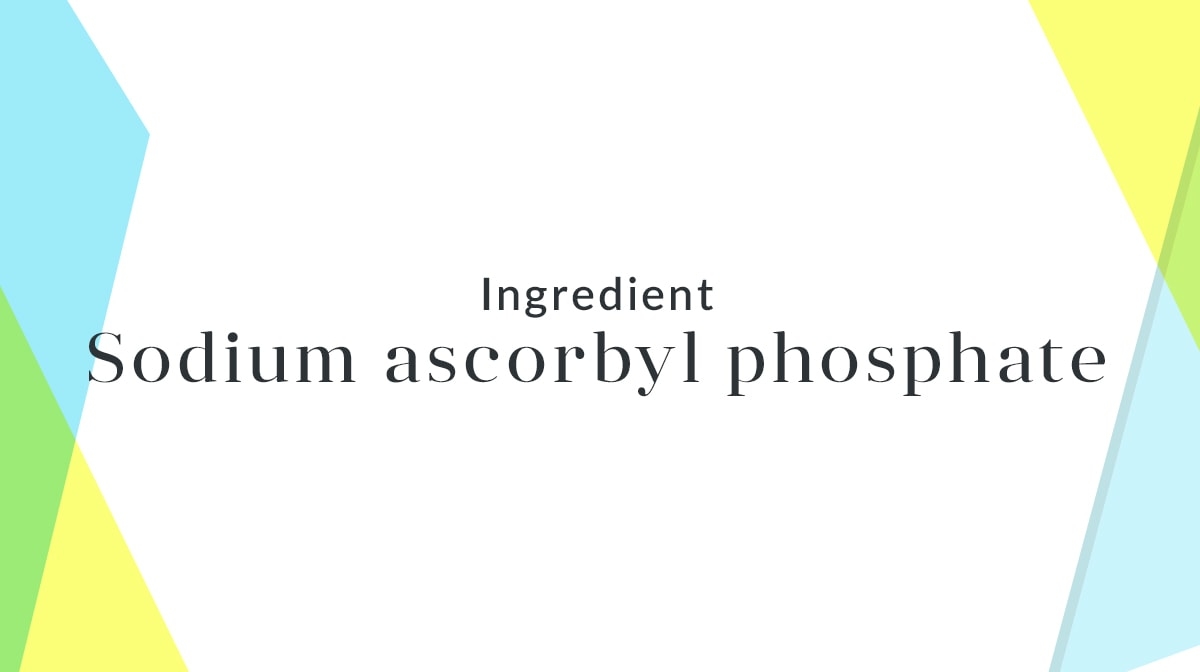
Sodium ascorbyl phosphate is a stabilized form of vitamin C. It's ideal in skin care products as it can be stored and packaged more effectively than regular vitamin C - which can be volatile and lose its effectiveness upon contact with the atmosphere.
Why do we need vitamin C?
It's important to supplement vitamin c as the body can't produce it naturally, Instead vitamin C is obtained from foods, including citrus fruits, bell peppers and numerous other fruits and vegetables. Vitamin C is used to produce energy in cells and also helps to shield the body from elements in the environment that can damage it.
Studies have found that supplementing vitamin C levels topically offers a large number of benefits for the skin, and as a result, many skin care companies feature products that contain the nutrient. Because molecules of vitamin C are rather unstable, meaning that they can easily break down in products. This degradation of the nutrient results in the loss of a product's ability to provide benefits to the skin. To safeguard against the breakdown of vitamin C, manufacturers must produce, ship and store products carefully, which results in higher costs and leads to higher brand prices.
How else can vitamin C be stabilized?
Sodium ascorbyl phosphate is formed by mixing ascorbic acid with other substances to form a salt. Clinical research has determined that sodium ascorbyl phosphate retains many of the same properties as pure vitamin C, but the molecules of the substance are far more stable. This is because the body splits apart the sodium ascorbyl phosphate molecules and creates pure vitamin C after application. Consequently, sodium ascorbyl phosphate is an ideal alternative to using pure vitamin C in skin care formulations and allows products to be produced, shipped and sold at a lower cost.
Why do we use it in skincare?
One of the largest benefits of sodium ascorbyl phosphate is its ability to limit oxidative stress in the body. Viewed as one of the largest contributors to aging, oxidative stress occurs when the cells of the body sustain permanent damage due to highly reactive particles known as free radicals. Contained in sunlight and in elements in the atmosphere, free radicals are constantly acting on the body, producing microscopic amounts of damage. Over time, this damage accumulates, leading to the development of signs of aging. Oxidative damage or stress has even been shown to cause some types of cancer.
Sodium ascorbyl phosphate functions as an antioxidant, a substance that neutralizes free radicals, reducing the amount of damage that they can do to cells. When applied topically to the skin, sodium ascorbyl phosphate can help slow down the aging process and the formation of fine lines and wrinkles. Because sunlight is one of the chief sources of oxidative damage, sodium ascorbyl phosphate is also added to sunscreens and to before and after sun care products. Vitamin C and sodium ascorbyl phosphate are both known to interfere with the production of melanin in the skin tissue.
What is the benefit of vitamin C on melanin?
Melanin is the skins pigment responsible for giving skin its natural color, and when produced in excessive amounts, causes age spots, freckles and other types of hyperpigmentation. Since sodium ascorbyl phosphate disrupts the manufacturing of melanin in the body, it is useful in treating many types of skin discoloration and is used as both an active or supporting ingredient in many skin whitening and brightening products. Usually, sodium ascorbyl phosphate concentrations of 3 percent or more are required to produce skin-lightening effects.
| Love Skincare? discover our edit of the b vitamins benefits to add to your collection. |

Related Articles







